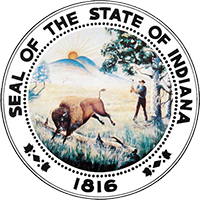To the Bench, Bar, and Public:
The Indiana Supreme Court seeks public comment on the following proposed amendments to the Indiana Rules of Court.
Appellate Rule 11
The proposed amendment to Appellate Rule 11 would require a court reporter to serve a copy of a motion for extension of time to file the transcript on the trial judge in addition to the parties to the appeal. The proposed amendment would also require the appellant to serve a copy of a motion to compel the transcript on the trial judge and parties to the appeal.
Proposed changes to Appellate Rule 11
Rules of Criminal Procedure
The proposed amendments to the Rules of Criminal Procedure would do the following:
- Rule 1.4 (A)(5)— clarify when discovery procedures apply in the investigative process
- Rule 2.4(B)— correct a drafting error
- Rule 2.5(B)— change “pro se defendant” to “self-represented defendant”
- Rule 2.7(A)— clarify that a defendant must file a separate legal memorandum with a motion to dismiss
- Rule 4.2— add new paragraph (C) to clarify when the time period tolls if a defendant is charged in one Indiana county prior to being incarcerated in a different county
Proposed changes to Criminal Rules
Rules of Post-Conviction Remedies
The proposed amendment to PCR Rule 1 would update the change of venue reference and update the transcript requirement for a challenge to a sentence imposed following a guilty plea.
Proposed changes to Post-Conviction Rule 1
Trial Rule 60
The proposed amendment to Trial Rule 60 would add a new paragraph on “juvenile adjudications” to allow a person adjudicated delinquent to collaterally attack the adjudication or disposition and would make other updates to the rule.
Proposed changes to Trial Rule 60
Feedback
The Court invited public comment on the proposed amendments until June 14, 2024.
Comments submitted by other means, including those sent directly to court staff or members of the Rules Committee will not be considered.
The Supreme Court's Rules Committee records and reviews each public comment received according to Indiana Trial Rule 80(D). The committee may then adjust the language in the proposed amendment based on public comments. If the committee moves forward with a proposed amendment, a final draft of the rule is submitted to the Indiana Supreme Court with copies of all public comments received. The Court then determines whether to accept the proposed amendment, reject it, rewrite it themselves, or send it back to the Rules Committee for additional study. This process can take several months. If a rule amendment is accepted, the Court will issue an order amending the rules.
